Art To The Rescue: Old US Police, Fire Boxes Get Breath Of Life
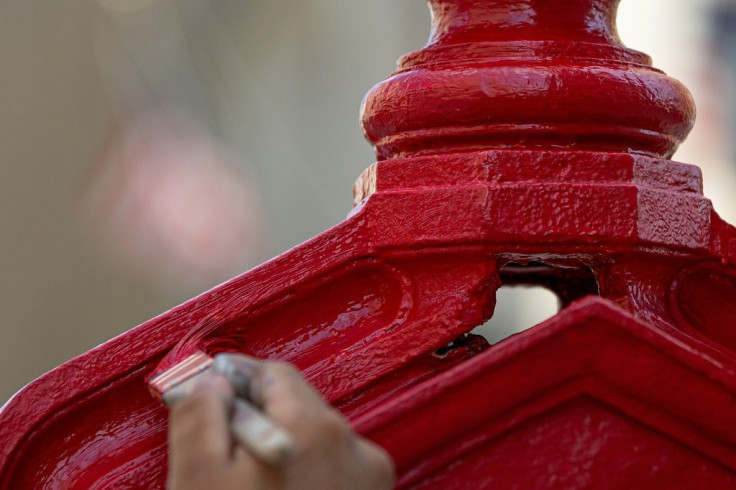
Decades after they helped save lives in the US capital, police and fire department call boxes still stand on city corners, relics of a time when firefighters used horse-drawn wagons and cops walked the beat.
Now, more than 40 years since they were last used as a fire alert and police communication system, the cast iron curiosities in downtown Washington are coming back to life as street art.
To honor prominent women from Washington's history, local artist Charles Bergen is jazzing up eight call boxes in the city's bustling heart.
Downtown property owners wanted their streets "to be more interesting, to be more active," said Ellen Jones, deputy executive director of the DowntownDC Business Improvement District (BID).
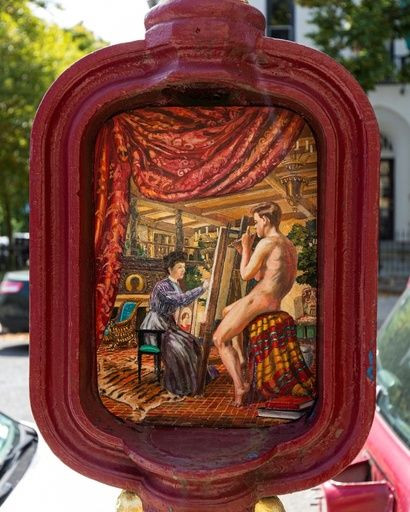
"We think public art is one way to do that," Jones told AFP.
They also really like the idea of turning eyesores "into an asset through art."
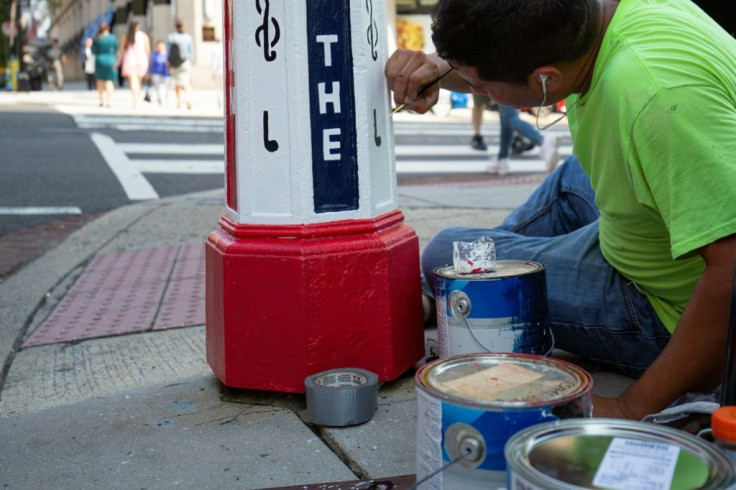
The city call boxes are designated historic, said Jones -- "so you can't take them out" of the ground even though some have started to fall apart, missing doors and panels.
The refurbishment is jointly funded by BID and Washington's Commission on the Arts and Humanities.
Art on Call, a city-funded restoration effort that ended in 2009, identified 1,100 abandoned boxes in Washington and restored 145 to reflect the identity of various neighborhoods.
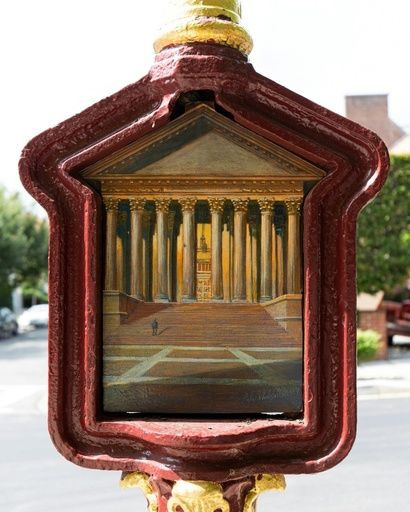
The boxes were first installed in the 19th century and contained a lever that citizens could pull in the event of a fire. It sent a telegraph signal with the box number to firefighters, who then knew where to respond.
Police boxes were slightly different, allowing an officer patrolling on foot to call his precinct house.
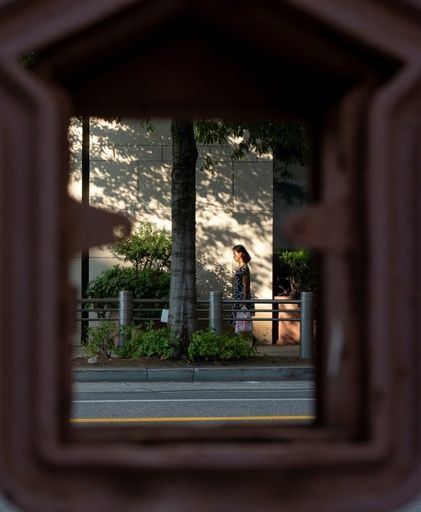
"A rule of the job was never to call twice from the same box, for that told the sergeant that the beat was not being walked," says a plaque on one of the Art on Call boxes.
Police radios and the city's 911 system made call boxes obsolete by the 1970s, but for an artist they remain a unique canvas.
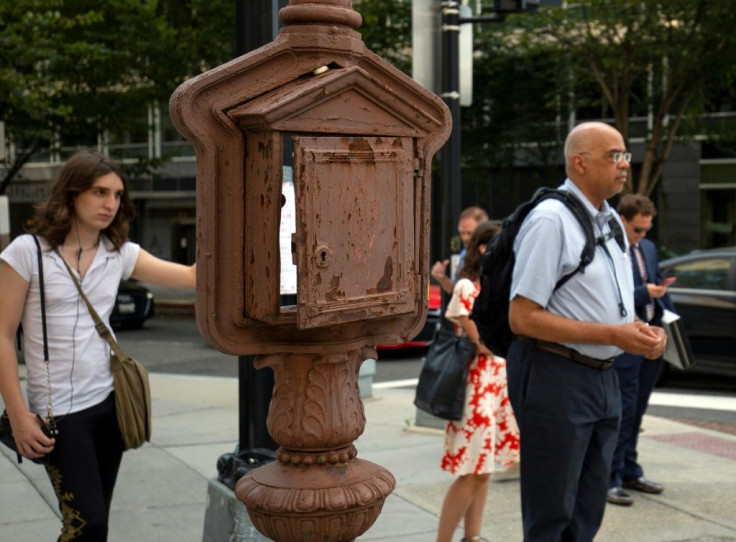
"You can't move these call boxes," Bergen, 56, tells AFP, so "you get the opportunity as an artist to put artwork in some great locations."
From sirens, to suffragists
Jurors picked Bergen in a national call for proposals, and he worked with a team that included other artists and even a historian.
The call boxes are mounted on pedestals roughly six feet (1.8 meters) tall. Some have a pipe that adds to their height, and which at one time included a light to guide responding firefighters.
Bergen uses the original structure but employs various materials, including paint, cast bronze and waterjet-cut stainless steel, to tell the women's stories and "engage people."
The color schemes help symbolize the historic contributions each woman made, and large text on the base reinforces the message with key words about their lives.
Julia Ward Howe is honored with a patriotic red, white and blue color scheme, stenciled musical notes, and the words "Battle Hymn of the Republic" on the pedestal.
Howe wrote the anthem after hearing Union troops singing and marching past the Willard Hotel during the Civil War. The hotel is still in business, beside her call box.
She and others are pictured in bronze relief portraits accompanied by plaques describing their accomplishments.
Bergen exploits the pipes above some of the boxes to install the painted stainless steel metalwork that further illustrates their stories: a woman working at a printing press for newspaper publisher Katharine Graham.
Blues and gospel musician Flora Molton is recognized with "street signs" pointing from the box toward the nearby locations where she sang.
Topping off the white, purple and gold call box of suffragist Alice Paul is a metal cutout picturing the women's right-to-vote march which she helped organize in 1913.
Bergen's work is to be inaugurated in early October, and Jones said the BID hopes to get funding to refurbish more call boxes next year.
"I think it's a great project," said Carolina Kenrick, 71, a retiree passing a call box that could use a coat of paint elsewhere in Washington.
"Renew them. Give them a new life," she said. "I think it's a positive that they're still standing."
© Copyright AFP {{Year}}. All rights reserved.





















